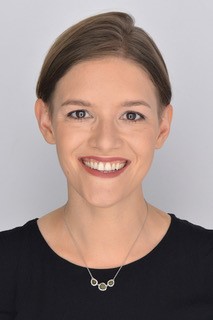It can be tempting to advertise as a generalist in private practice. The fear that you won’t get enough clients if you niche (specialize) in one area of counselling can trick you into believing that you must generalize in order to fill up your private practice. If you give in to this scarcity fallacy, you may make decisions about your Canadian private practice that could in fact reduce the number of clients who choose you.
Why It’s Important to Niche
When there are many options, you need to stand out from the crowd. From my experience niching is an excellent way to do this. Though it’s not the only factor, niching showcases your passion and expertise so that your ideal clientele will have an easier time finding and selecting you over other therapists.
How to select a niche in private practice
Questions to ask yourself:
- What type of cases do you look forward to?
- What type of cases energize you?
- What counselling outcomes bring you satisfaction?
I believe that you should go into private practice to do work that you are passionate about and that you find fulfilling. Do not let the fear of not getting enough clients push you into selecting a niche that you don’t like but that you think will get you more clients. Make sure that when you start your private practice you can support yourself financially without any clients so that you will not make decisions based on desperation. If you feel that you are not skilled in the area that you are most passionate about, get more training and find a supervisor that is an expert in that area before advertising.
Types of Niches
Choosing a niche usually involves a:
- Certain age group
- Certain problem
- Certain outcome
A therapeutic approach could also be included in your niche, but from my experience, people choose therapists from the criteria above and are less concerned about your approach. Niches can be very specific or more general. Deciding how specific your niche should be (or if you should have multiple niches) usually depends on how big of a population there is in your town or city. The bigger the city the more specific and focused the niche should be so that you stand out. For example, when I started my private practice in Halifax in 2016, my niche was:
“I help teens who feel weighed down by anxiety and depression build confidence, gain insight, and find happiness.”
This niche fit well for me at the time because I was (and still am) passionate about helping teens. Through previous experiences before starting private practice, I realized that I enjoyed helping teens who were struggling with mental health issues and I loved to see teenagers become confident and happy through therapy with me. I also had experience working for the BC government as a Child and Youth Mental Health Clinician.
However, if I was in a larger city like Toronto, I would have focused my niche even further. Such as:
“I help teens who feel weighed down by depression find happiness”
Or if I was in a small town, I would have added a couple of niches such as:
“I help teens who feel weighed down by depression build confidence and young adults who feel lost find direction”
It can be scary to limit your advertising to one area of counselling. Bur when you niche, more clients will choose you because you’ll stand out as an expert. And don’t fear that niching means you can only counsel a certain population. Just because you niche does not mean that you only have to accept clients who fit your specialization. I have many clients that seek me out who do not fit into my niche(s). They choose me for other reasons. But the main part of my private practice has been built through niching.
Until next time,
Julia

About Julia
Julia Smith, MEd, RCT, CCC, is the owner of Fearless Practice. She specializes in consulting with Canadian counsellors and therapists who want support and guidance with starting an online private practice. She also owns a virtual private practice in Halifax, Nova Scotia.
Learn more about her consulting services at www.fearlesspractice.ca!
Disclaimer: The information provided on this blog is for informational purposes only. It is not clinical or consulting advice. E-subscribers and website visitors are receiving general advertising and information about starting a private practice and should not act upon this information without seeking professional consultation.
*The views expressed by our authors are personal opinions and do not necessarily reflect the views of the CCPA
*The views expressed by our authors are personal opinions and do not necessarily reflect the views of the CCPA


